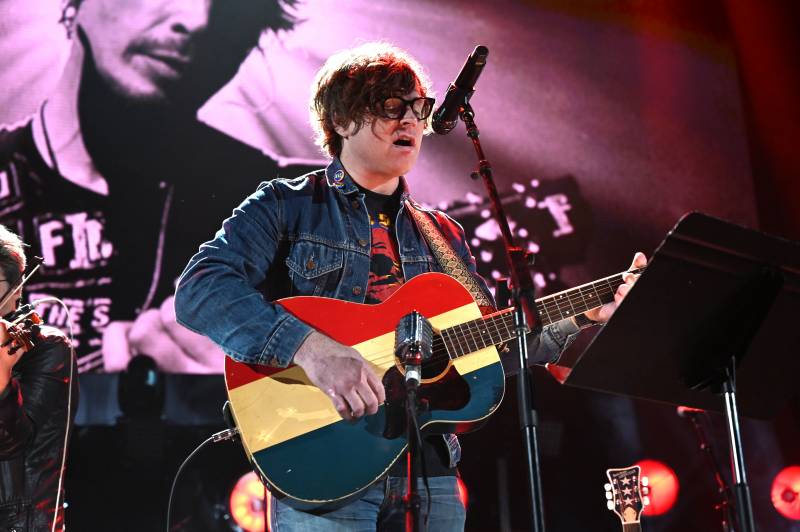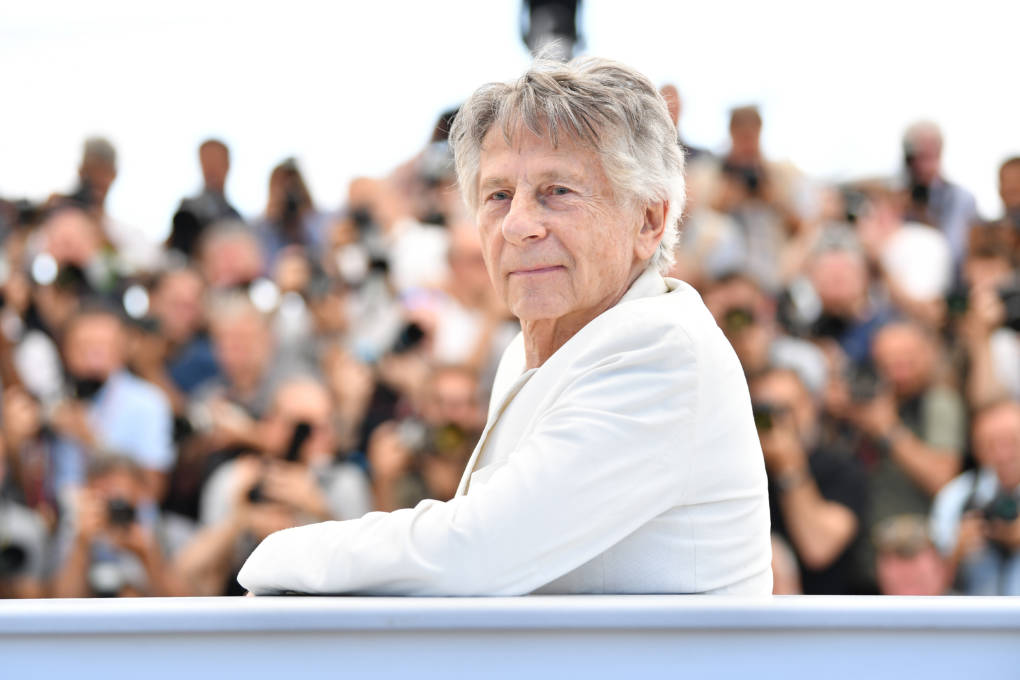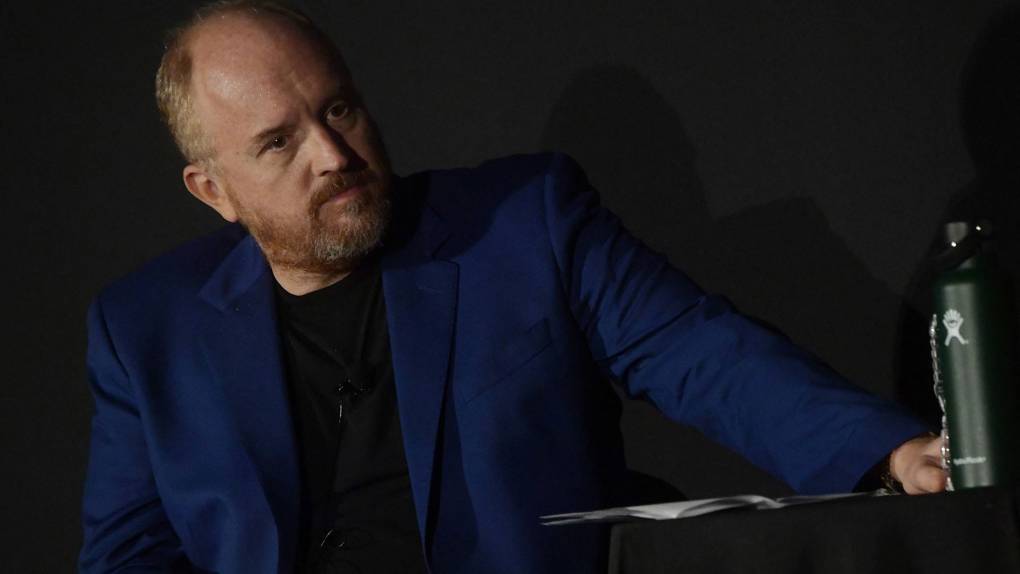It’s been clear for some time now that cancel culture—for famous people at least—doesn’t exist. Clear that abusers can act with impunity, be exposed by the people who survived their behavior, weather a brief storm, then carry on with their lives as if almost nothing happened.
Cancel Culture Doesn't Exist For Celebrities—And 2022 is Proof, if You Needed it

It was clear in 2014 when Bill Cosby continued to perform sold-out shows after the first wave of sexual assault allegations against him emerged. It was clear when Johnny Depp supporters grew more vocal after a U.K. court found the actor responsible for “sustained and multiple assaults” against Amber Heard. And it was definitely clear when Roman Polanski and Woody Allen, decades after multiple accusations from underage girls became public, continued to receive accolades and standing ovations.
Someone else got a standing ovation recently: Ryan Adams. The singer-songwriter was applauded for five straight minutes by an adoring audience at Carnegie Hall in May. It was his first show since a 2019 New York Times article detailed claims by seven women of sexual misconduct. His accusers—who described a pattern of emotional manipulation, coercion, and offers of professional help that were contingent on personal intimacy—included Phoebe Bridgers and Adams’ ex-wife, Mandy Moore.
Adams’ “crisis-PR specialist” Howard Bragman told Variety on June 3: “We want to show that he has a real team behind him that believes in him and supports him, and that he’s putting a life together. We want people to notice, and if they want to move forward with him, here’s where we are.”
What America has learned over and over again since #MeToo hit the mainstream in 2017 is that there will never be a shortage of people who support celebrities after they’ve been accused of monstrous things. If you have acted in movies or made music that people love; if you are handsome or can make people laugh; if you are charming in enough interviews over a long enough period of time, America will forgive you for just about anything.
Case in point: Louis C.K. Almost five years after admitting to indecent exposure and masturbation in front of multiple unwilling women, the comedian just won a Grammy Award for Best Comedy Album. The lauded Sincerely Louis C.K album includes extensive commentary about his inappropriate behavior that minimizes the distress of the women involved.
“I like jerking off,” he jokes at one point. “I don’t like being alone, that’s all I can tell you. I get lonely. It’s just sad. I like company. I like to share. I’m good at it, too. If you’re good at juggling, you wouldn’t do it alone in the dark. You’d gather folks and amaze them.”
Adams and C.K. are far from the only disgraced celebrities getting back on their feet this year, after brief withdrawals from public life prompted by credible allegations.
Other pertinent examples include:
- Kevin Spacey, who announced an upcoming starring role in 1242—Gateway to the West directly after being charged in the U.K. with four counts of sexual assault against three men
- Danny Masterson, who was accused of multiple sexual assaults (and of using fellow Scientologists to harass his accusers) has a new movie with Richard Dreyfuss in the can, and another on the horizon
- Andrew Cuomo, who resigned as New York governor last summer after allegedly sexually harassing 11 women, has started making public speeches again, possibly ramping up to a political campaign
- Jeffrey Tambor, who was accused by co-workers of sexual harassment and aggression in 2017, has a new movie—The Adventures of Drunky—in post-production
- Jeremy Piven has a new movie coming out this year, despite three women accusing him of sexual misconduct in 2018. (This one is not terribly surprising—Piven already has a successful podcast and several prominent business ventures)
- In April, Charlie Rose posted an interview with Warren Buffett to his website as part of a comeback attempt, following multiple accusations of sexual harassment that got him fired from CBS and PBS in 2017
- Months after 12 women came forward to accuse Marilyn Manson of physical and sexual abuse—and just three months after Evan Rachel Wood detailed her experiences with him in an HBO documentary—#MarilynMansonIsInnocent is the most common hashtag associated with the singer on Twitter
Remember the sense of empowerment women enjoyed in 2017 and 2018? Remember the widely held idea at the time that bad men would finally pay for what they had done? Remember the liberation of talking openly about harassment endured and assaults survived, without shame or hesitation? The time Amber Heard did just that, without even naming her alleged abuser, before being found guilty of defamation for it? Let’s take a pause and remember those feelings. Let’s take a pause and mourn how far in the rearview it feels in 2022. And then, let’s try and get that sense of purpose back.
It’s not just statutes of limitation and systemic sexism keeping abuse survivors from receiving proper justice at this point. It’s audiences. Audiences that will look the other way as long as the song is good enough, or the joke is funny enough, or the artist is handsome enough. Audiences that continue to prioritize the comfort and success of men over the pain and suffering of women. (And given that 81% of women have experienced sexual harassment, and 1 in 5 have experienced attempted or completed rape, it’s not a small amount of suffering.)
I have long been a fan of Ryan Adams. I own many of his records and have seen him perform too many times to count. When I told fellow Adams fans in my life why I would no longer support him, one responded by covering her ears and asking me not to spoil it. She will continue, she tells me, to attend his concerts. What he allegedly did to those women is not, she tells me, her problem. Except it is. It’s all of our problem.
When we show up for these men, it tells survivors—all survivors everywhere—that what happened to them doesn’t matter. It tells them that the songs we like, the movies we love, and the jokes that make us laugh are more important than survivors’ pain. And they’re not—regardless of the “comebacks” you may see this year.




